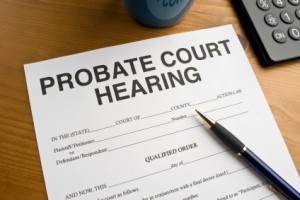 Preparing for a Custody Evaluation Hearing
Preparing for a Custody Evaluation Hearing
In many cases where a change in the child custody and visitation schedule is sought, the court would order a custody evaluation hearing. At such a hearing, the parents of the child and the child(ren) are interviewed by an independent evaluator. The parents’ new partners, certain relatives and other interested parties may be also be interviewed by the evaluator. The evaluator also looks into the case history and court file, the parents’ criminal and Department of Motor Vehicles history, Department of Children and Family Services records, and any other information that may be relevant to the case. The evaluator then presents her findings and report to the parents/parties and the court. The parents/parties then have the choice to accept the evaluator’s recommendation or contest it at a court hearing. If the parents choose to go forward with a court hearing and contest the evaluator’s findings, they will have the opportunity to question the evaluator under oath and elicit the testimony of other witnesses, in the cases where such testimony is relevant and appropriate.
It is highly recommended that each of the parents/parties provides the evaluator with as much evidence as they have regarding the proposed change in the parenting schedule, that would help support the evaluator’s findings and recommendation. During the evaluation, the parents/parties should keep the focus of their interview on the reasons why the change in the custodial orders would be in the best interest of their child and they should refrain from disparaging the opposing party to the case. However, if there are blemishes on the other parent’s record, those should be brought to the evaluator’s attention in a calm and organized manner. It is important to demonstrate that the parent requesting the change of custody orders is not trying to server the relationship between the other parent and the child, but is rather seeking the order for the benefit of the child.
When preparing for a child custody evaluation, each party, and especially the party requesting the change in custody might find it beneficial to their case, to prepare a binder with information for the evaluator.
The binder should have separate sections including documents related to that section (i.e. old school records, old home, new school records, new home, medical records, prior custody orders and parenting agreements, restraining orders and police reports, mediation reports, Child Services reports, prior communications between the parents, etc.) The following are examples of items to include in the binder, where such exist:
- All custody orders for the most relevant period.
- All parenting agreements, if such exits.
- Restraining orders concerning personal conduct, domestic violence, or civil harassment.
- Prior reports and recommendations from non-confidential mediation or other custody assessments or evaluations. Prior reports and recommendations from the Department of Social Services and the Child Support Services Department.
- Current assessments of the children or parents, if such exist. For example, a child may have been formally assessed for a learning or other type of disability or may have an Individual Educational Plan (IEP), or a parent may have been assessed for a substance abuse problem.
- School progress reports, report cards, tardy and absent records, truancy notices from the child’s current school. Information regarding the child’s old school: ratings, demographic date, etc.
- Information regarding the child’s new school: enrollment options, classes offered, ratings, demographic date, etc.
- Information about the child’s new living location: apartment and surrounding area. Pictures would be helpful too.
- Information regarding the moving party’s future employment in the proposed relocation area, if the request is based on a move-away.
- Medical records evidencing the child’s visits to the doctor; the diagnosis or outcome; prescriptions ordered.
- E-mail exchanges between the child and either of the parents; or between either of the parents and the child’s teacher or doctor; or between the opposing party and any other people involved in this case (i.e. other family members).
The information included should support the party’s position as to the requested change of custody.
By Slaveia Iankoulova
Law Offices Of Vincent W Davis And Associates





